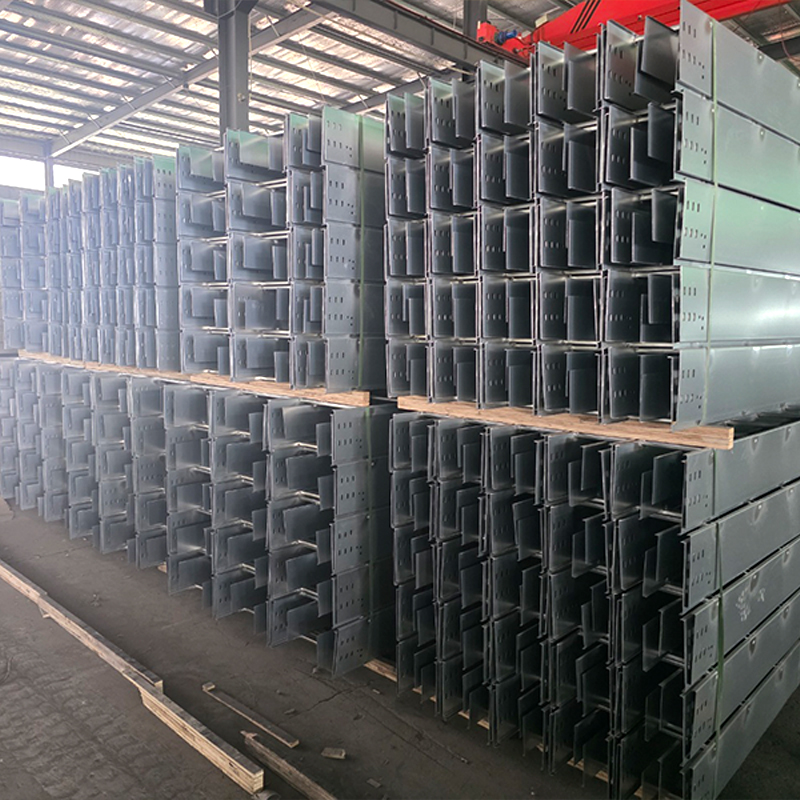PRODUCTS
CATEGORIES
FAQ
1.What's your advantage?
A: Honest business with competitive price and professional service on export process.
2.Are you a trading company or a manufacturer?
A : We are an enterprise integrating industry and trade.
3.Can you give warranty of your products?
A: Yes, we extend a 100% satisfaction guarantee on all items. Please feel free to feedback immediately if you are not pleased with our quality or service.
4.Where are you? Can I visit you?
A: Sure,welcome to you visit our factory at any time.
5.How long is your delivery time?
A: If in stock, it usually takes 5-10 days. Or if the goods are not in stock, within 30 days, it will be calculated by quantity.
6.Are customization and labeling services supported?
A: Sure,we support that.
Contact: Amanda
Mobile/WeChat: +8613287758681
WhatsApp: +8613287758681
Email: lisa@shenhaogroup.com


There are many classification methods for cable Bridges, which can be divided into various types according to different materials, processing technology, performance, shape, etc., so that buyers of cable Bridges can have a clear understanding when purchasing cable Bridges. Today, the classification of cable Bridges of different materials and the main applicable environment are introduced.
According to the different materials of cable Bridges processed and produced, they can be mainly divided into four categories: steel cable Bridges (galvanized cable Bridges and hot-dip galvanized cable Bridges, spray plastic cable Bridges) stainless steel cable Bridges, aluminum alloy cable Bridges and glass fiber reinforced cable Bridges.
1. Hot dip galvanizing, also known as hot dip galvanizing, is a method of immersing steel components in molten zinc liquid with a temperature of up to 450-500 degrees to obtain a metal covering layer, the hot dip galvanizing layer is generally above 65μm (micron), and even up to 100μm (micron). The steel components of the hot-dip galvanized cable bridge should be fully galvanized.
Hot-dip galvanized cable Bridges are basically thick-walled steel parts. Hot-dip galvanized cable Bridges have been widely used in industry (such as chemical equipment, petroleum processing, ocean exploration, metal structure, power transmission, shipbuilding, etc.), agriculture (such as sprinkling irrigation, greenhouse), construction (such as water and gas transmission, wire bushings, scaffolding, houses, etc.), Bridges, transportation, etc., in recent years. Because hot-dip galvanized products have beautiful appearance, good corrosion resistance and other characteristics, its application is more and more extensive.
2. The processing method of spraying a layer of plastic powder on the surface of the plastic bridge adopts corona discharge phenomenon to adsorb the powder on the cable bridge, which is more firm and beautiful. After melting at high temperature, the powder is solidified on the metal surface to form a coated layer, which can have different colors. The coating can effectively resist moisture and chemical corrosion. Different colors are easy to manage, and improve the beauty of the project; Some construction occasions have clearly proposed that the electrostatic spraying process must be used. Not suitable for outdoor exposure to ultraviolet light and easy to peel metal. Suitable for use in hot and humid environments such as basements.
3. Stainless steel cable bridge
Stainless steel cable tray is a kind of bridge made of 304/316 stainless steel material by cutting and bending. Stainless steel cable tray has the characteristics of very corrosion resistance, impact resistance and corrosion resistance. Among them, the stainless steel bridge includes three types of trough bridge, tray bridge and cascade bridge, and different types of bridge can make the stainless steel bridge meet the use of different areas. Therefore, stainless steel bridge is a good choice for laying and installing cable lines in heavily corroded and humid areas.
4. Aluminum alloy cable bridge
Aluminum alloy cable bridge is extruded by aluminum alloy. It has high dimensional accuracy, good strength, light weight, large carrying capacity (among which, the large-span disc type straight through can meet the bearing capacity of 6 meters), simple structure, convenient installation, beautiful appearance and unique style. The surface of aluminum alloy cable bridge is sand-sprayed and oxidized to produce a natural oxidation protective film. Strong corrosion resistance to atmosphere and chemical media. Aluminum alloy plate base plate, according to the need can be used flat structure or convex stamping structure.
After the surface of the aluminum alloy cable bridge is anodized, it is not only anti-corrosion, but also anti-electromagnetic interference, which is irreplaceable for the steel bridge. Aluminum alloy cable bridge can better reflect the unique corrosion resistance of aluminum alloy cable bridge in the coastal area near fog, high humidity and high corrosion environment.
5. Fiberglass cable bridge:
The main materials of fiberglass cable bridge are glass fiber, reinforced plastic and flame retardant; The weight is relatively light, the super carrying capacity, and the service life is relatively long (the service life of the standard FRP bridge can reach 20 years, the ordinary one is only about 6 years, and the standard one is 3 times that of the ordinary one). The most important feature of glass fiber reinforced plastic cable bridge is that there is no need to use fire during installation, which makes the application of glass fiber reinforced plastic cable bridge in explosive hazardous environments particularly large. Glass fiber reinforced plastic cable bridge is often used in places where maintenance is more troublesome, such as outdoor buildings susceptible to atmospheric corrosion, chemical plants, seaside, tunnels and so on.
Our company and our team


Workshop and production line


Warehouse delivery

Details Determine Quality
Your trust will be rewarded with high quality.
Related Suggestion
Get real-time quotes
We will reply to you as soon as we receive your message.







